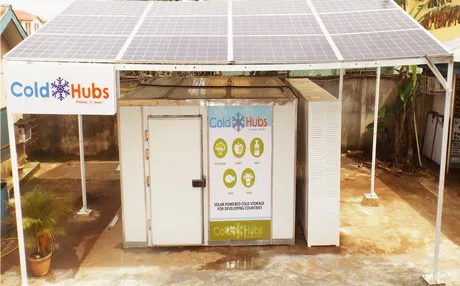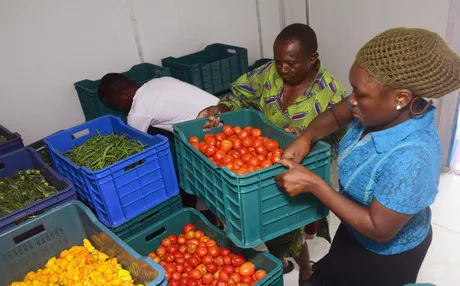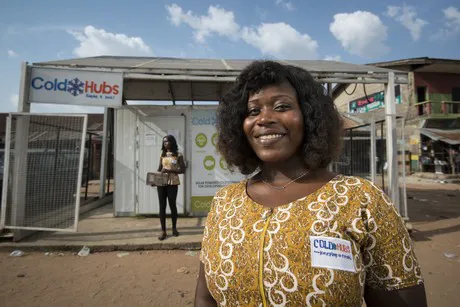Cold storage is an important aspect of the global food trade - it enables the long-term preservation of fruits and vegetables and is integral to maintaining freshness in food. From storage at the producer, to long-distance transport, to the final consumer's refrigerator. The right temperature is crucial and can usually be made possible either by a connection to the electricity grid or diesel engines.
What is taken for granted in Central Europe can not always be guaranteed in other countries. This is also the case in Nigeria - where, due to the lack of cooling technology, 45% of all food produced is thrown away because it spoils. A problem that Nnaemeka Ikegwuonu tries to solve.
The founder and CEO of Coldhubs: Nnaemeka Ikegwuonu. In the "Top or Flop" vote for startups at the DOGK, the entrepreneur had a 100% approval rate.
The Nigerian has developed a solution that allows small farmers and market traders to preserve food longer, regardless of the unreliable power grid and without the use of fuels such as diesel. "I wanted to find a solution that worked flawlessly despite the circumstances on the ground, so I came up with the idea for ColdHubs: a solar powered, walk-in coldroom." The idea was implemented together with a German research institute and financed by the German Association for International Cooperation.


The ColdHubs can extend the shelf life of fresh fruits and vegetables from 2 days to about 21. "The first and most obvious benefit is reducing food waste, but that's not all. With more saleable produce, regional producers can increase their income by 25%, and more healthy, nutritious food will be available in rural areas which can help to combat and prevent malnutrition in children and socially disadvantaged groups."
For the maintenance of the ColdHubs, the company tries to hire only women as much as possible, thus improving the situation for women in the Nigerian labor market. "All in all, it is a self-sustaining business model that compensates for its initial investment within the first year of use."

Nnaemeka Ikegwuonu was at the German Fruit & Vegetable Congress last week to present his project and hoped to get to know new ideas and technologies, which he aims to bring to Nigeria to further improve the situation of farmers and traders there.
For more information:
Nnaemeka Ikegwuonu
ColdHubs
nnaemeka@coldhubs.com
www.coldhubs.com
